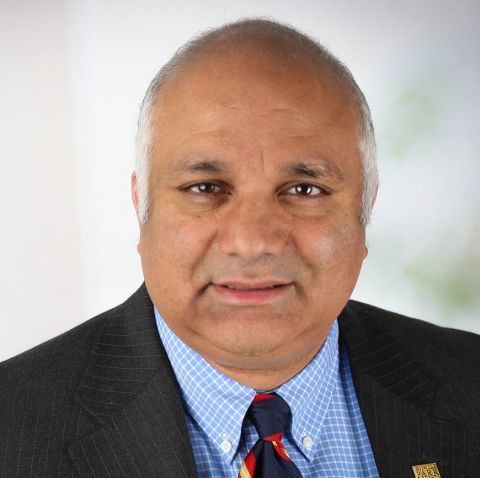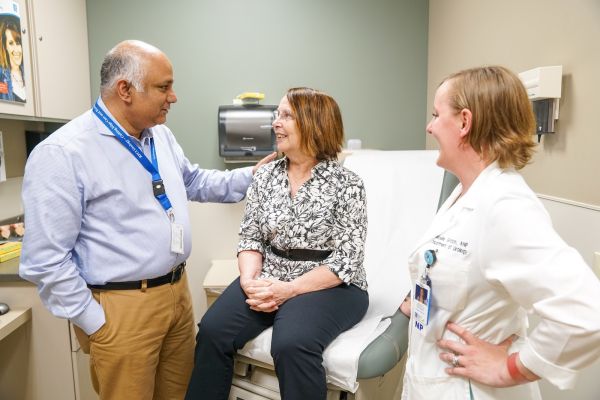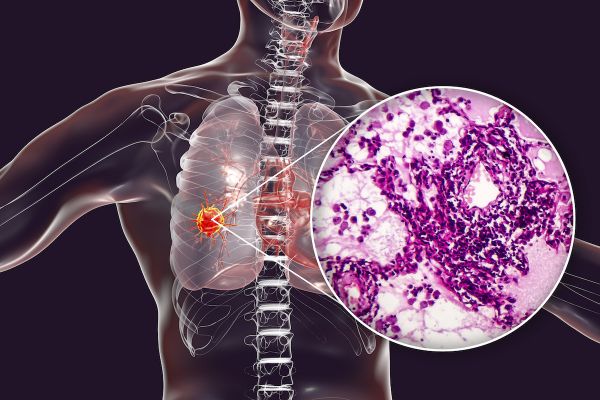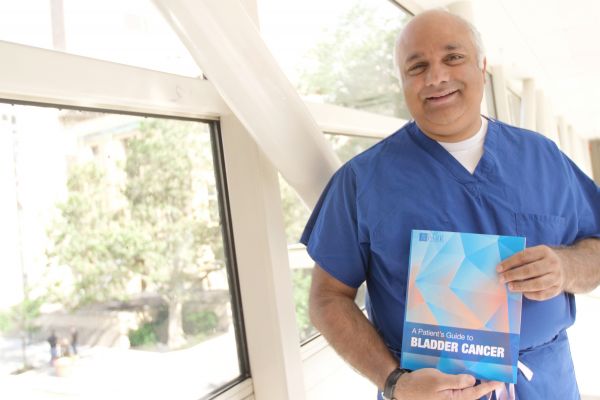If you’ve been told that you have a mass in your bladder, you need to have it evaluated by experts uniquely qualified to determine whether or not it is cancer.
“While there are several types of benign masses that can grow in the bladder, these are uncommon and account for fewer than 1% of bladder masses," says Khurshid Guru, MD, Chair of Roswell Park’s Department of Urology.
Evaluating a bladder mass
To assess a bladder mass, urologists perform a physical examination, and blood and urine tests to evaluate for the presence of blood in the urine. You may also have a bladder wash to obtain cells from your bladder for a pathologist to analyze. But ultimately, the urologist needs to look inside your bladder via a procedure called cystoscopy.
Cystoscopy involves passing a cystoscope (a small tube fitted with a tiny light and camera) through the urethra and into the bladder, allowing the urologist to see what is there.
If your cystoscopy or imaging scans reveal a suspicious mass or any irregularity, such as a lesion, we will obtain a biopsy or tissue sample through an incisionless surgical procedure called Transurethral Resection of Bladder Tumor (TURBT). During a TURBT, the surgeon inserts a tool called a resectoscope through the urethra to reach the inside of your bladder and remove a piece of tumor tissue or the entire tumor from your bladder.
A pathologist will then examine the tissue to determine whether it is benign or cancerous.
“At Roswell Park, our pathologists are fully trained for all disease sites, but also specialize in diagnosing tumors of specific sites, such as the urinary tract,” says Dr. Guru. “As a high-volume cancer center, Roswell Park has pathologists who examine bladder mass tissue samples every day.”
Recognizing problematic symptoms
You always should report unusual urinary symptoms to your primary healthcare provider, including:
- Difficulty with urination: feeling the need to empty your bladder but having little or no urine coming out, or the need to strain or bear down while urinating
- Urgent need to urinate to prevent leakage
- Frequent and/or painful urination
- Blood in the urine: your urine may appear pink, rusty orange or red (with or without blood clots).
"Some of these symptoms can be signs of other issues, such as urinary tract infections, kidney or bladder stones or other kidney diseases,” says Dr. Guru. “The important thing is not to ignore these symptoms. If you are having any symptoms of bladder masses, like blood in your urine, and especially if your urination is painless, you must be evaluated by a doctor,” says Dr. Guru. “We can then determine the cause and treat it appropriately.
“If people follow this advice, we can save hundreds of lives. There is no approved screening test for bladder cancer, and there is currently no way to tell from symptoms alone if a tumor is benign or malignant."
Often, your primary care physician will conduct urine tests for other health issues, as part of your routine healthcare or if you have any of the symptoms listed above. These tests can detect microscopic amounts of blood in your urine, an early warning sign of urinary problems, including bladder cancer. If blood is detected in your urine, your primary physician will usually refer you to a urologist.
Why Roswell Park for Bladder Cancer?
Find out what makes Roswell Park unique for treating bladder cancer.
Learn MoreDo benign tumors need to be removed?
“It depends,” says Dr. Guru. “Benign bladder masses usually grow very slowly and will not spread to other tissues or organs in the body. In some cases, we will just monitor patients on a regular basis. However, some benign masses can bleed or grow very large and cause problems by taking up too much space in your bladder or pressing on other organs in your body. In that case, we usually remove or treat benign masses, using a TURBT procedure.
“If you are ever unsure about your bladder symptoms or your bladder tumor diagnosis, we recommend an appointment with our multidisciplinary cancer care experts at Roswell Park.”




